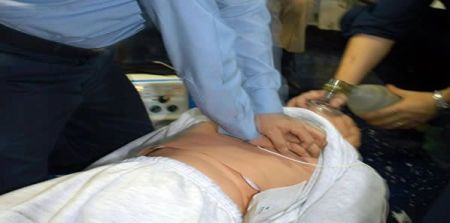According to new evidence, checking the blood sugar levels of people who arrive at hospital emergency departments with acute heart failure could play an important role in identifying patients who are at high risk of early death, further hospitalisations or the development of other health problems such as diabetes.
The study has been published online in the European Heart Journal and was conducted by researchers from the Institute of Clinical Evaluative Sciences (ICES), the Peter Munk Cardiac Center at the University of Toronto, Canada. The outcomes of 16,524 patients who arrived at emergency departments with acute heart failure between 2004 and 2007 were analysed. 56 percent of the patients did not have pre-existing diabetes. The study patients were aged between 70-85 years. The outcomes of these patients were compared with a group of patients whose blood glucose levels ranged between 3.9 to 6.1 mmol/L.
The findings show that patients who arrive at hospitals with no proper diagnosis of diabetes and with blood sugar levels above 6.1 mmol/L are at a higher risk of developing diabetes and early death. Patients without pre-existing diabetes and with blood sugar levels between 6.1-7.8 mmol/Lwere found to have a 26 percent higher risk of death within 30 days from any cause as compared to the reference group. In patients with blood sugar levels exceeding 11.1 mmol/L, the risk increased to 50 percent.
Patients with blood sugar levels between 6.1-7.8 mmol/L had a 28 percent higher risk of death from cardiovascular diseases. This increased to 64 percent in patients with levels between 9.4-11.1mmol/L. The risk of subsequently developing diabetes was 61 percent higher in patients with levels between 6.1-7.8 mmol/L and this increased by 14 percent for every 1 mmol/L increase in their blood glucose levels. The risk of diabetes was 261 percent higher in patients whose levels exceed 11.1 mmol/L.
31.5 percent of the 7249 patients with pre-existing diabetes had blood glucose levels higher than 11.1 mmol/L. Their risk of death from any cause, within 30 days of arriving at the hospital with heart failure increased by 48 percent as compared to the reference group. These patients also had a 39 percent increased risk of being hospitalised for diabetes-related reasons.
Associate Professor of Medicine, Dr. Douglas Lee, a senior scientist at the ICES, who led the research, said: "Our findings suggest that the measurement of blood sugar levels in all patients arriving at emergency departments with acute heart failure could provide doctors with useful prognostic information and could help to improve outcomes in these patients. It is a rapid, readily available and inexpensive test that could be used to enable doctors to quickly assess a patient's risk for a wide range of possible outcomes and to suggest appropriate screening strategies that should be put in place."
Source: European Society of Cardiology
Image Credit: Wikimedia Commons
References:
Maneesh Sud et al. Presentation blood glucose and death, hospitalization, and future diabetes risk in patients with acute heart failure syndromes. (2015). European Heart Journal. doi: 10.1093/eurheartj/ehu462.



























